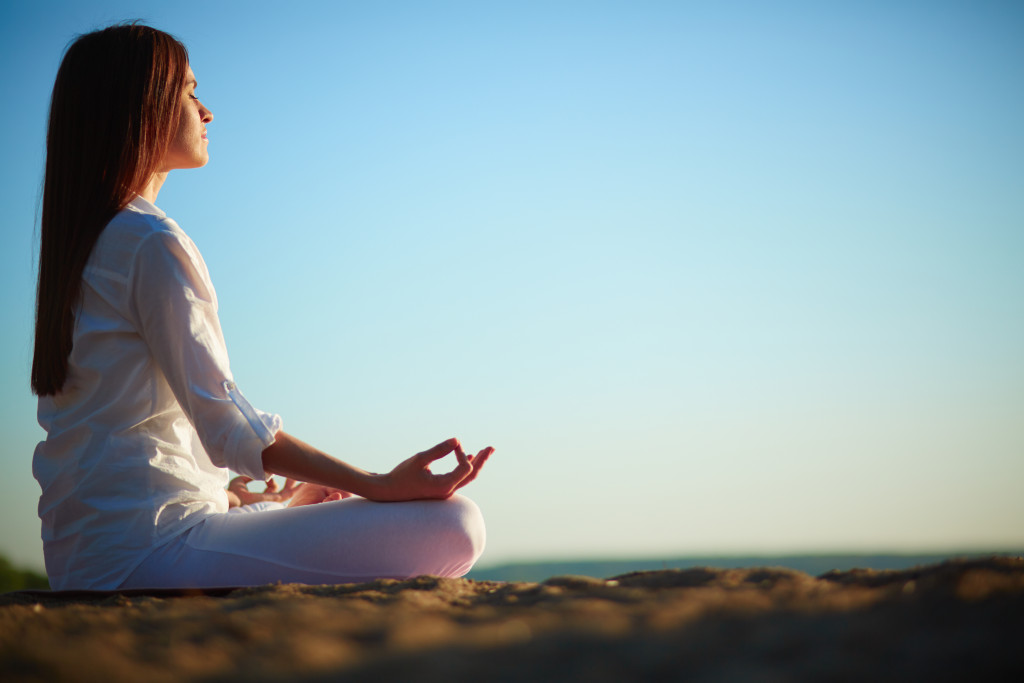As your loved one approaches their sunset years, they will start experiencing a decline in cognitive and emotional health. Their once sharp mind is now forgetful, and what used to be proud individuals are now more dependent on others. They can now feel many aches and pains in their body. Engaging in daily activities is now tricky due to their existing medical conditions.
Different activities can help your loved one improve the health of their aging brain. This can include staying active, maintaining a healthy diet, and learning something new. Another thing that is worth engaging in is practicing mindfulness.
How Mindfulness Helps the Aging Brain
Capitalizing on older adult’s behavior and turning them into mindful habits help improve cognitive abilities. Take note that mindfulness is a form of mental training. When trying to practice mindfulness, one is essentially focusing on the present, accepting thoughts, and focusing on one’s feelings.
According to numerous studies, mindfulness can improve brain health. Mindfulness meditation has the ability to induce positive changes in one’s awareness, attention, and even emotion. This, in turn, helps mitigate cognitive declines, especially during old age.
In a nutshell, being older adults can enjoy a better and healthier life despite their age by being more mindful. More researchers are studying the correlation between mindfulness mediation and an increase in cognitive reserve capacity. Thankfully, there are numerous activities older adults can engage in to practice mindfulness.
Ways Seniors Can Practice Mindfulness
Be Open to Different Care Options
Now that you are starting to be more dependent on others, it helps that you yourself plan on how you can better care for yourself. Sometimes, the best way to do this is by exploring senior care options. The earlier you accept your situation and current needs, the easier it will be for you and your family to prepare for what could be inevitable in the future.
For instance, you were recently diagnosed with a terminal illness. Your current condition is now taking a toll on your health and happiness. Instead of simply allowing your loved ones to constantly worry about your comfort, be open to different hospice care arrangements.
If you prefer to stay in your own home, you can always choose to receive hospice care in your home. This does more than offer you the right way of catering to your unique needs. This can also help you with your own brain and mental health in the long run.
Start Your Gratitude Journal
Journaling is a good way to keep precious memories and ensure you don’t forget them. You get to use your own words and pour your thoughts into writing. This helps you become more aware of your mood, feelings, and emotions.
With a gratitude journal, you start appreciating life more. Instead of focusing on the bad things happening in your life right now, you get to put your attention on the things you are grateful for. This helps you become a more aware and grateful individual despite your everyday challenges and hardships.

Practice Saying Positive Affirmations
Sayings yes to hope, happiness and positivity promote better emotional, physical, mental health. This is since saying positive affirmations leads to the production of chemicals that make you feel good. Such a practice enables you to focus on something worthwhile, helping you get through your daily challenges.
Different studies show that self-affirmations have a positive effect on one’s health. This helps create better resistance against threats to self-competence. You enjoy better self-confidence, which allows you to accomplish your tasks and fight to attain goals despite your age.
Invest in Daily Rituals
Your routine has many things to do with your brain health. Having a daily routine indeed helps aging people thrive better. But did you know that a daily routine also helps in boosting mental health?
A daily routine helps seniors reduce their stress levels. Knowing what you need to do and expect to happen each day gives seniors better peace of mind. There is no need to worry about the other things that could happen.
Daily rituals also help boost sleep quality and improve feelings of safety and security. Engaging in the same activities each day makes it easier to cope, especially for those with cognitive and memory problems. A routine will make them feel more secure and grounded.
Forming a new habit takes about 21 days. This means the earlier you start investing in a daily ritual, the better. Start with small healthy habits like mindful eating, walking, and guided meditation to yield the best results.
Practicing mindfulness, especially in your retirement years, is a great way to take better care of your health. You can fight age-related brain-health decline and live a more satisfying life. Don’t let old age stop you from living life to the fullest by embracing mindfulness in your life.
